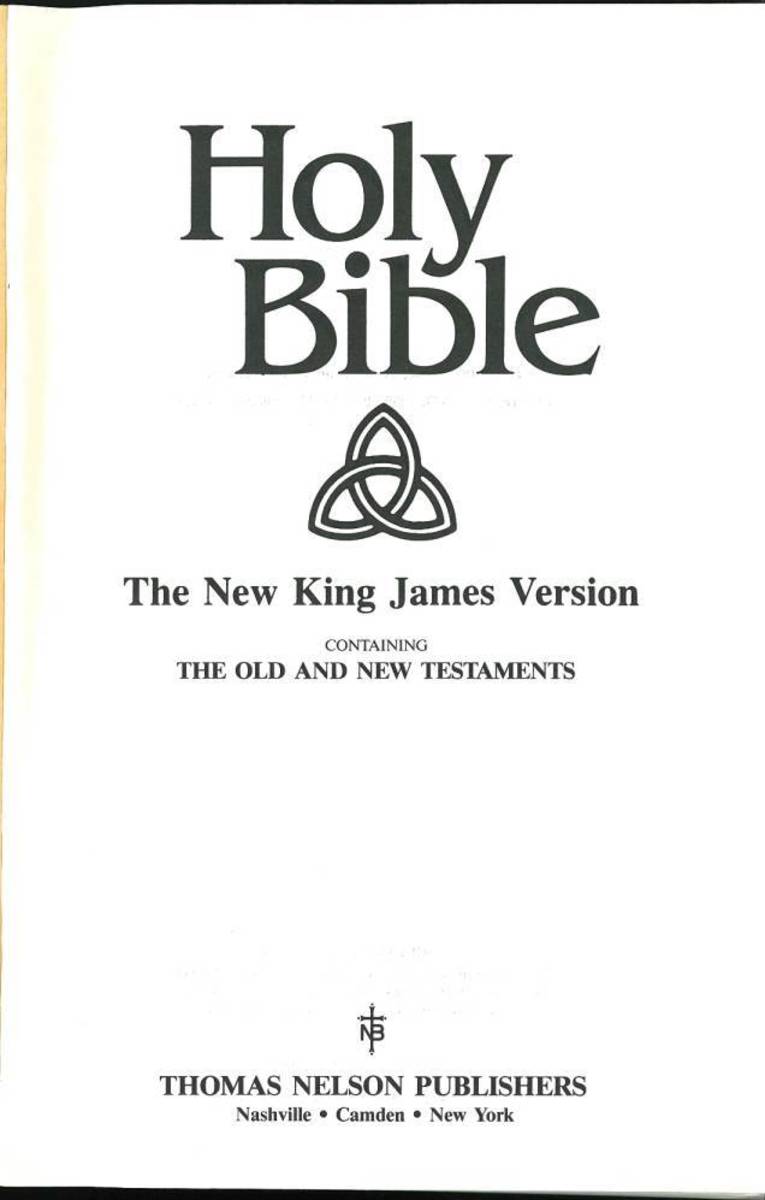Can The Bible Be Trusted?
Can The Bible Be Trusted?
Before deciding to focus on the teachings of the Bible, I had to prove, or disprove, to my own satisfaction the validity, and truthfulness of its origin. By this time in my life, I had heard most of the common ideas of the secular world, regarding the relevance and importance of the Bible.
“It was written by man and therefore cannot be trusted,” they said. Or, “It’s a collection of ‘nice’ stories, not to be taken literally.” Another common belief was that the Bible is full of contradictions and errors. Yet others claim, “The Bible is just too hard to understand.” Some even believe that it is a book which applies only to the Jewish peoples.
I myself, being a secular ‘worldling’ at the time, grew up with a lot of these beliefs as well. I hadn’t read very much of the Bible at that point, and was resigned to the idea that those who ‘did’ read the Bible and who had spent many ‘years’ studying it, could be trusted to let the rest of us know about its message. Having no background of the book itself and being just a pre-teen at the time, I was naïve to the ideas of misinterpretations, mistranslations and ulterior agendas and motives.
Skipping ahead a number of years, I found myself now ready to take a more serious peek into the teachings of Christianity, and therefore found the need to confirm the origins of the Bible, at least to my own personal satisfaction. I should note here that I do not have a degree in theology. Nor do I hold a PhD in biblical research. I am not a scholar, nor have I spent most of my life dedicated to these studies, as have many others. Quite simply – I am a Bible ‘student’, period.

Here’s what I did.
First priority was to determine the origins of the Scriptures. I was quickly discouraged when told that there actually were ‘no’ original manuscripts, that is, everything we have today are just copies of copies. Immediately warning lights went off but I determined to follow it through to its conclusion, and I’m glad I did! I learned that, although all they had were copies of copies, they could actually confirm these documents against other copies (from other geographical locations), as well as ancient church documents and letters, in order to prove that the writings had not been lost or corrupted (that is, added-to or taken-away from). Also, a brief study into the discovery of the Dead Sea Scrolls proved to be very supportive of the fidelity of the modern Bible we have today. It provided archaeological proof of the ‘antiquity’ of the Old Testament scriptures.
Being satisfied with my research into the origins of the Scriptures, my next step was to investigate the various ‘versions’ of the Bible, specifically focussing on the contents, as well as the accuracy of the translation. This study revealed some very interesting details in regards to the ‘streams of information’ that were used for the various versions of the Bible. To sum it up, the King James Version of the Bible proved to be the most complete and accurate English translation.
At this point I had proved to myself that the King James Version of the Bible does actually contain the complete message of the Gospel. However, further tests were required, if I was going to allow this book to have any bearing on my life.
Using ‘secular’ books (encyclopedia and world history) of no particular bias, I was able to prove the Bible in the following ways…
Chronologically
The order of the events told and the dates of their occurrence agree with secular history.
Historically
The events recorded in the Bible are actually recorded in secular books from around the world.
Archaeologically
Archaeology has, and continues to prove the events recorded in the Bible.
Prophetically
Everything that the Bible predicted would happen, thus far – has happened.
The above information alone was enough to convince me that the teachings of the Bible are far more relevant than first appears. Yet, there were still many profound details concerning the contents of this book. Consider the following…
Science
-The Bible told us there was no Charles Atlas holding up the Earth, long before he was even a thought (Job 26:7)
-The Bible told us the world was round, long before man found out (Isaiah 40:22)
-God said that air had weight, long before the scientists knew (Job 28:25)
Health
-We were told to cover body waste with dirt thousands of years ahead of its time (Deut. 23:12, 13)
-If people would have heeded the warnings in the Bible about immoral sexual conduct, they would have little or no problems with STD’s such as Syphilis, Gonorrhea or AIDS, as well as the temptation to abort unwanted pregnancy.
-Leave alcoholic beverages alone (Proverbs 23:29-32). If this were implemented, just think what it would mean (millions of alcoholics becoming sober, respectable citizens, millions of families reunited, millions of broken homes mended, thousands upon thousands of lives saved by sober driving, thousands of government, business and professional leaders making clear-minded decisions, and billions of dollars available for humanitarian use).
Unity
One of the greatest miracles of the Bible is its unity. Please ponder the following…
The 66 books of the Bible were written:
-On three continents.
-In three languages.
-By about 40 different people (kings, shepherds, scientists, attorneys, an army general, fishermen, priests, and a physician).
-Over a period of about 1,500 years.
-On the most controversial subjects.
-By people who, in most cases, had never met.
-By authors whose education and background varied greatly.
Yet, though it seems totally inconceivable, the 66 books maintain harmony with each other. Often new concepts on a subject are expressed, but these concepts do not undermine what other Bible writers say on the same subject.
This was the clincher for me! If we ask people who have viewed an identical event to each give a report of what happened, they will differ widely and will virtually always contradict each other in some way. Yet the Bible, penned by 40 writers over a 1,500-year period, reads as if written by one great mind!
The overwhelming majority of so-called errors or contradictions in the Bible have been demonstrated to be simply errors of judgment or lack of understanding on the part of those making the complaint. They are not errors at all, but simply truths misunderstood, and typically they originate with either a misinterpretation of a Bible text, or, quite frankly, with someone’s preconceived agenda or motive.
In the very 'least', the Bible is the world's first recorded history book.
Future Hubs will now focus on the teachings of the Bible











